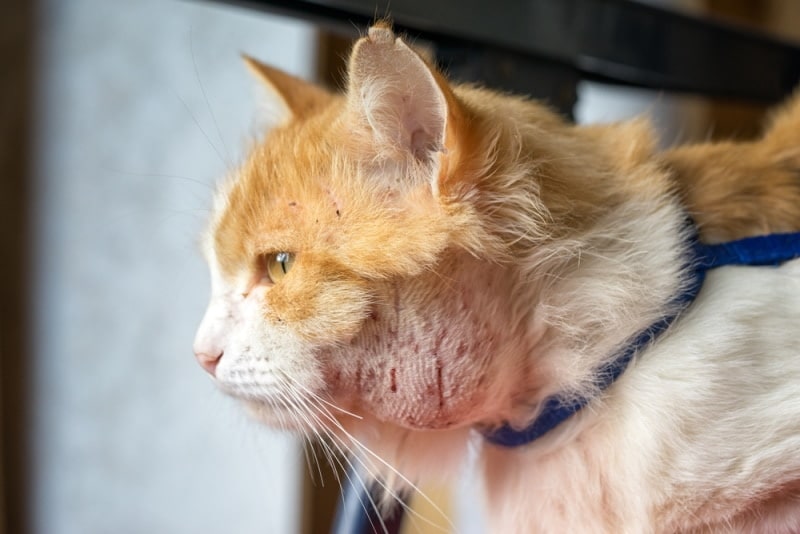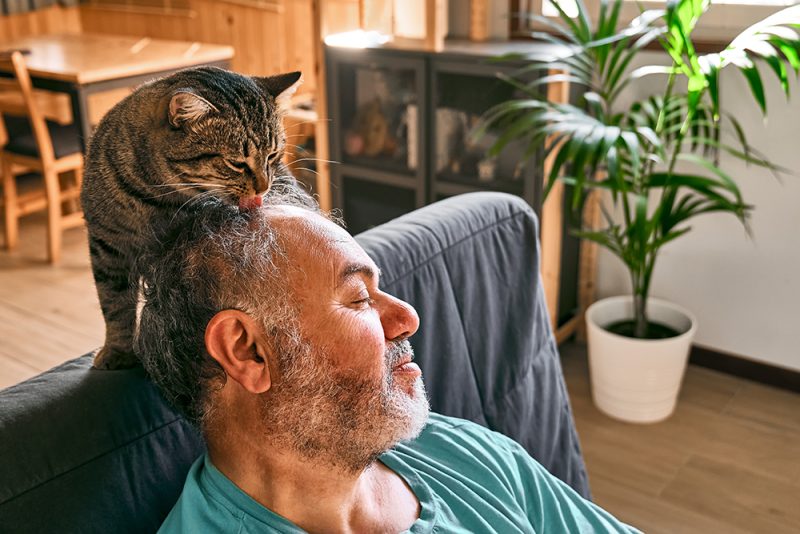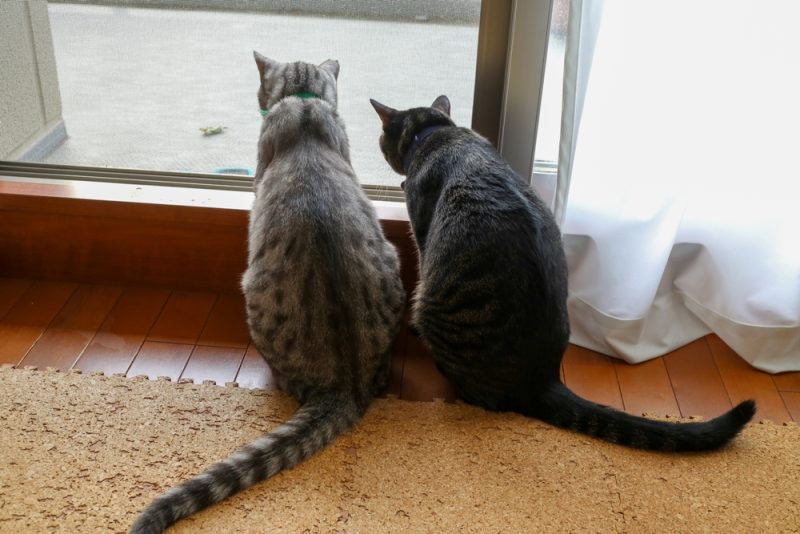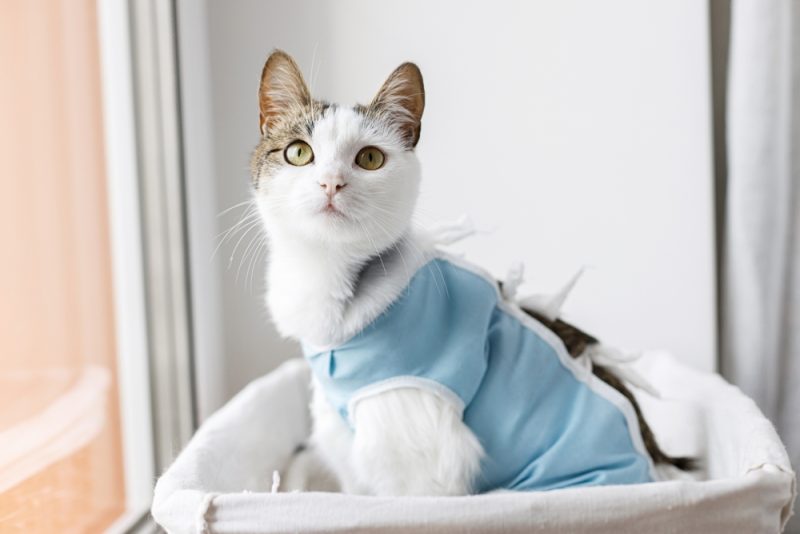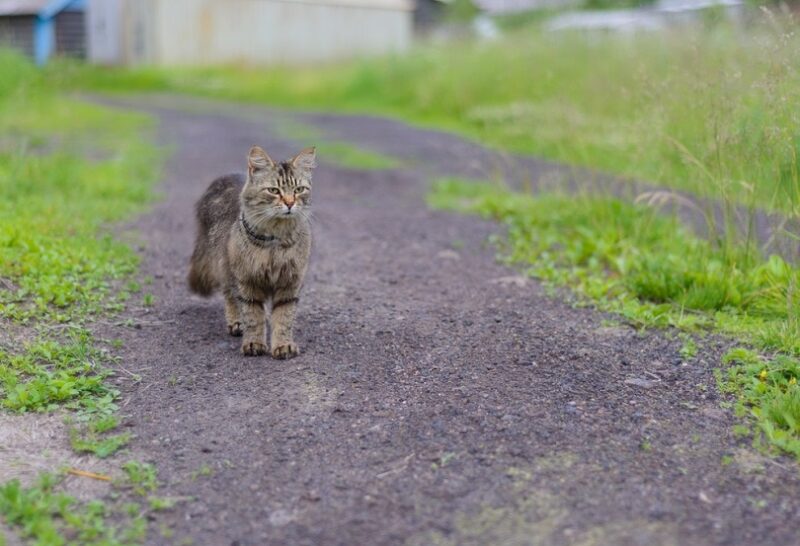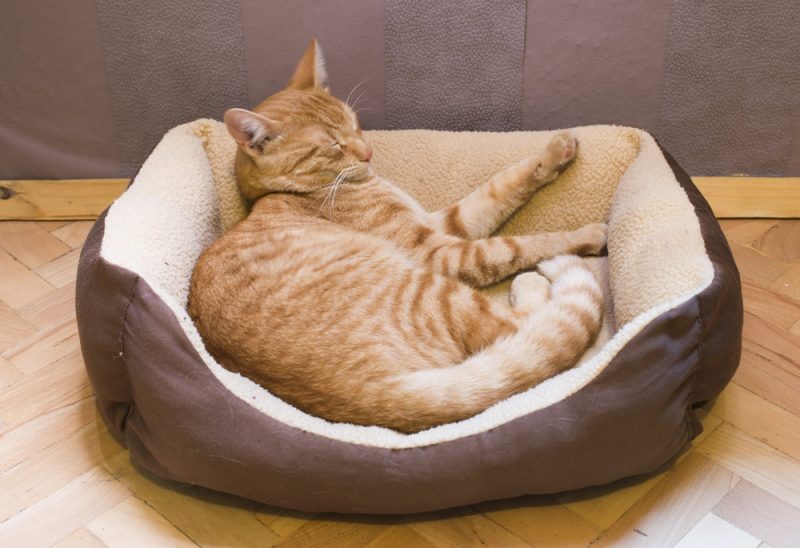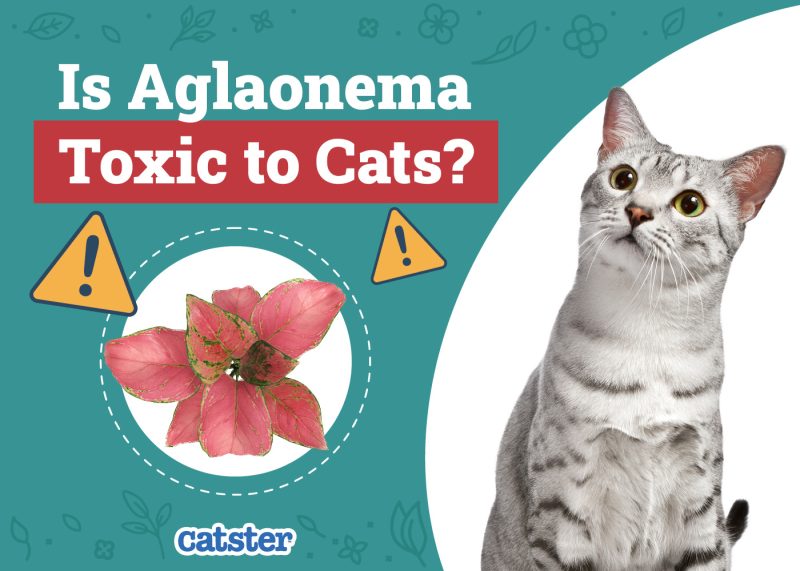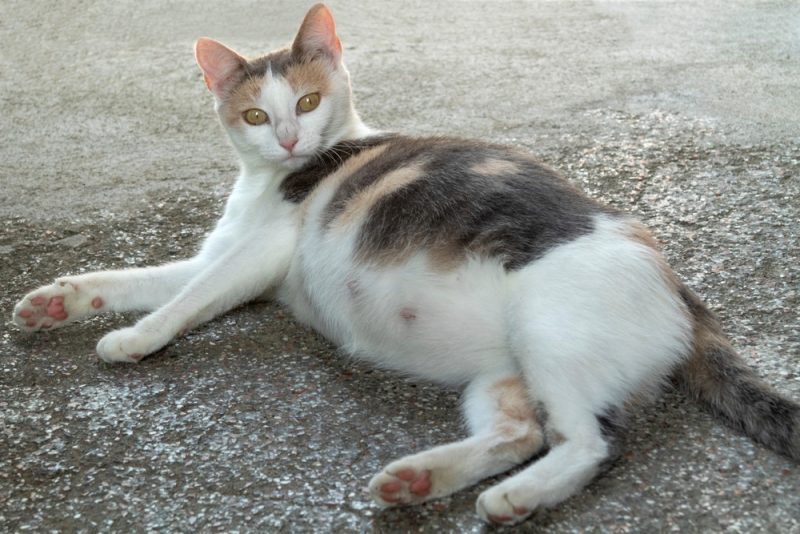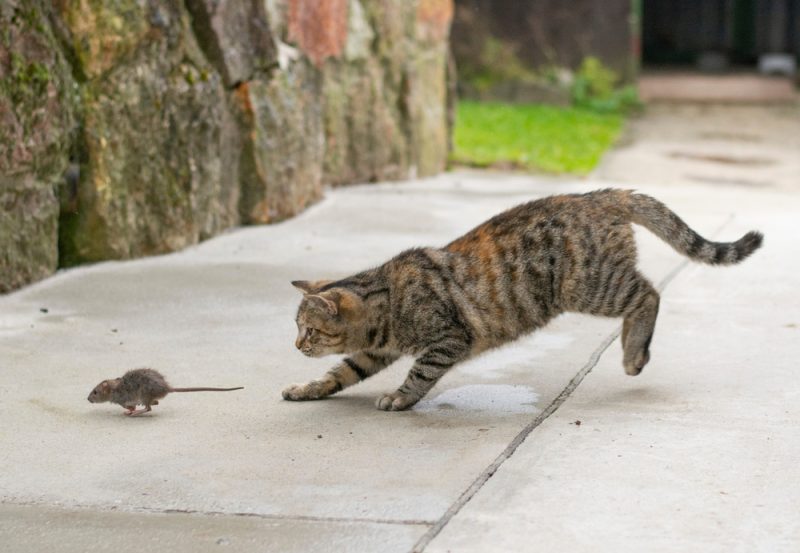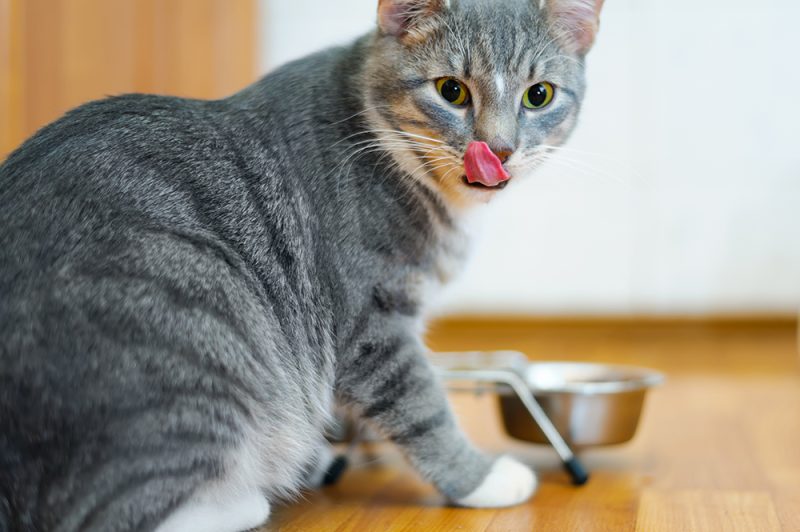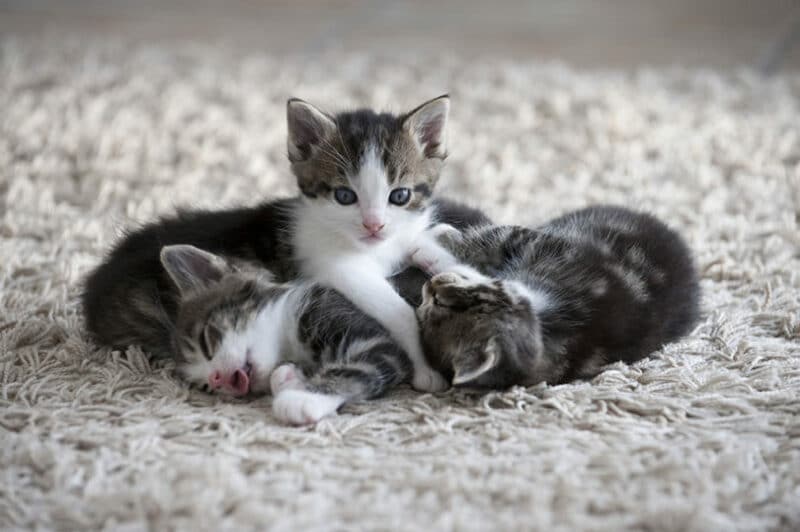A cat abscess, defined as a painful collection of pus, is a common ailment, but it can often be difficult to detect because most cats dislike being examined when they are in pain1. Some abscesses look like lumps, and others may be open and weeping and appear infected. Occasionally, your cat may seem to be generally unwell, and the vet won’t discover the abscess until they examine the animal more closely.
So, what should you do if you discover an abscess, and is it capable of healing on its own? Seeking your vet’s advice is the first option, since leaving an abscess to heal on its own may cause future complications. Read on to learn more about abscesses in cats and the best treatment options.

What Causes Abscesses in Cats?
Most abscesses in cats are caused by cat fights. Cats are territorial creatures; they like their own space and dislike invaders of that space. Wherever there is a high-density population of cats in the area, there will be fighting. Teeth and claws harbor nasty bacteria, and when these are introduced into an open pocket of skin, like a wound, infection can begin, resulting in an abscess.
A bite may simply start as a painful puncture that heals over. This creates a seal in which the bacteria multiply over approximately 2 to 4 days, resulting in an encapsulated abscess.
Penetrating injuries from foreign materials like grass seeds, sticks, and thorns can also lead to abscesses under the skin, though this is less common in cats. Also, abscesses can occur anywhere in the body, not just under the skin. Cats can get a “tooth root abscess”2, which is normally caused by dental disease or trauma to a tooth, and they can also have an abscess in their internal body systems, such as their lungs, liver, and brain. These are normally caused by an infection, sometimes associated with foreign material. However, these are far less common than the abscesses that can be seen and felt externally, under the skin.

What Are the Signs That My Cat May Have an Abscess?
Signs to watch out for include:
- Swollen lump
- Weeping wound
- Floppy tail
- Reduced appetite
- Low energy/ sleepiness
- Difficulty walking
- Limping
- Growling, twitching, over-grooming
- Hiding and unsociability
If you need to speak with a vet but can't get to one, head over to PangoVet. It's an online service where you can talk to a vet online and get the advice you need for your pet — all at an affordable price!

How Do I Treat an Abscess?
Abscesses are painful and usually require medical treatment to be resolved. Also, the sooner that a cat starts treatment for an abscess, the quicker it heals, and you are far less likely to run into any complications, which can be time-consuming and expensive to treat, as well as dangerous for your cat. It’s best to seek out veterinary attention if you think that your cat has an abscess, rather than attempt to treat it at home.
For non-severe cases, treatment is generally approached on an “outpatient” basis. The affected cat will be given antibiotics and pain relief. If your cat can tolerate it, the abscess will then be clipped and cleaned. If it’s swollen and not yet discharging, your vet will likely recommend lancing the abscess, which usually involves sedation for your cat’s comfort. While your cat is sedated, the vet will drain and flush the abscess and ensure that no other puncture wounds need attention.
If your cat is unwell (feverish, not eating, and lethargic), they may require hospitalization. Your vet may recommend administering a drip and managing their pain with strong medication until the antibiotics start working. For severe abscesses, they may need more intensive surgical treatment and possibly a drain placement.
With treatment, the typical healing time for an abscess takes about 1 to 2 weeks. It is important at this time for you to keep your cat from licking the affected area and prevent them from getting into any more fights. Continued wound care at home may include routine bathing and compressions of the area if your cat is amenable to it.
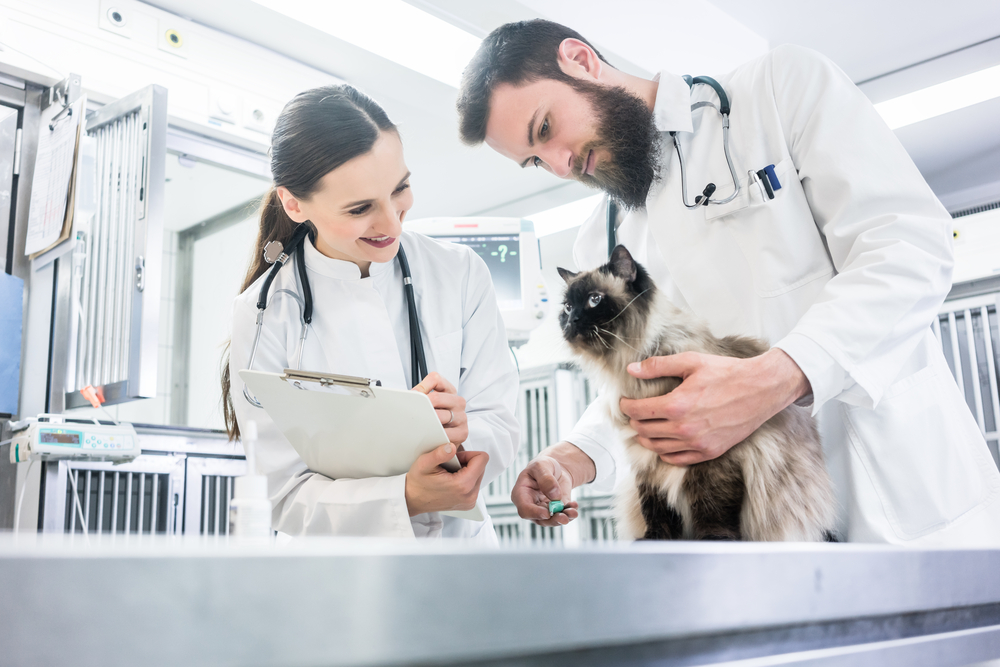
What Would Happen If the Abscess Doesn’t Get Treatment?
The worst-case scenario for an untreated abscess is that the infection reaches the bloodstream, causing sepsis and organ dysfunction. It’ll be difficult for the body’s immune system to overcome the infection without the aid of antibiotics and treatment.
The main concern with abscesses originating from bite wounds is that they can potentially spread infectious diseases, like feline immunodeficiency virus (or “feline AIDS”) and feline leukemia virus. Therefore, it is important to ensure that your cat is up to date with their vaccinations. If they are not, talk to your vet about testing protocols to ensure that they have not been infected by the viruses, which can be devastating to the health of your cat.
How Can I Prevent My Cat From Getting Abscesses?
Your first objective is to stop your cat from fighting. Intact males (i.e., their testicles are still present) are more likely to fight than neutered males and females, as they are fighting for more than territory.
If your cat has a track record of getting into scraps, keeping them indoors as much as possible, especially at night, will eliminate the potential for repeated incidents. Try to make their indoor space as comfortable as possible when attempting this transition to life indoors. Having raised cat platforms around the room, climbing frames, calming pheromone spray, toys, and access to a litter tray and water will help keep them stimulated.
If they do spend time outside, continually check them for any evidence of injury. If you think that your cat has been in a fight and you can feel or see puncture wounds, take your cat to the vet before these have time to seal shut and for infection to set in. The right antibiotics given quickly will help prevent an abscess, and your cat will be less likely to require any procedures or hospitalization.
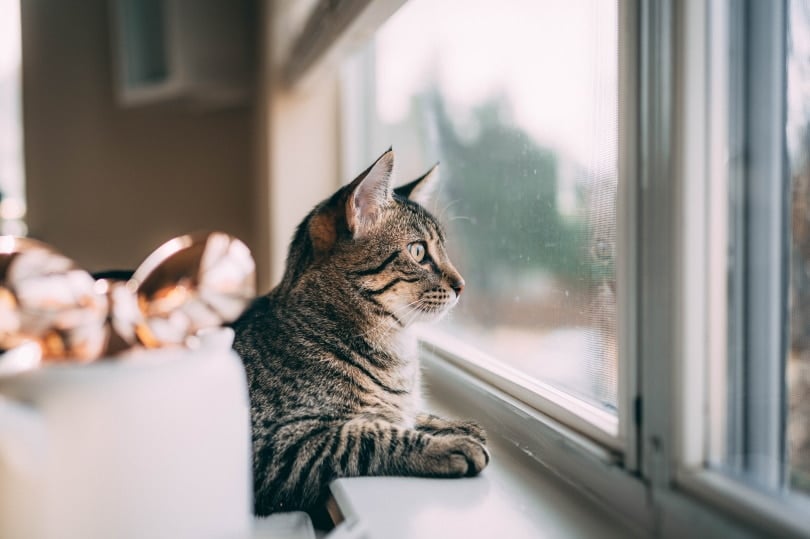

Conclusion
Cat abscesses are nasty yet common ailments. When they are found early, treatment is straightforward. However, leaving an abscess to heal on its own may cause complications that could have been avoided by seeking out veterinary care. Prevention is always recommended, either by keeping your cat indoors or ensuring that they are neutered to reduce the likelihood of fighting. At the very least, if your cat does tend to get into mischief, ensure that they are up to date with their vaccinations and check them over regularly for signs of injury.
Featured Image Credit: Elena11, Shutterstock
